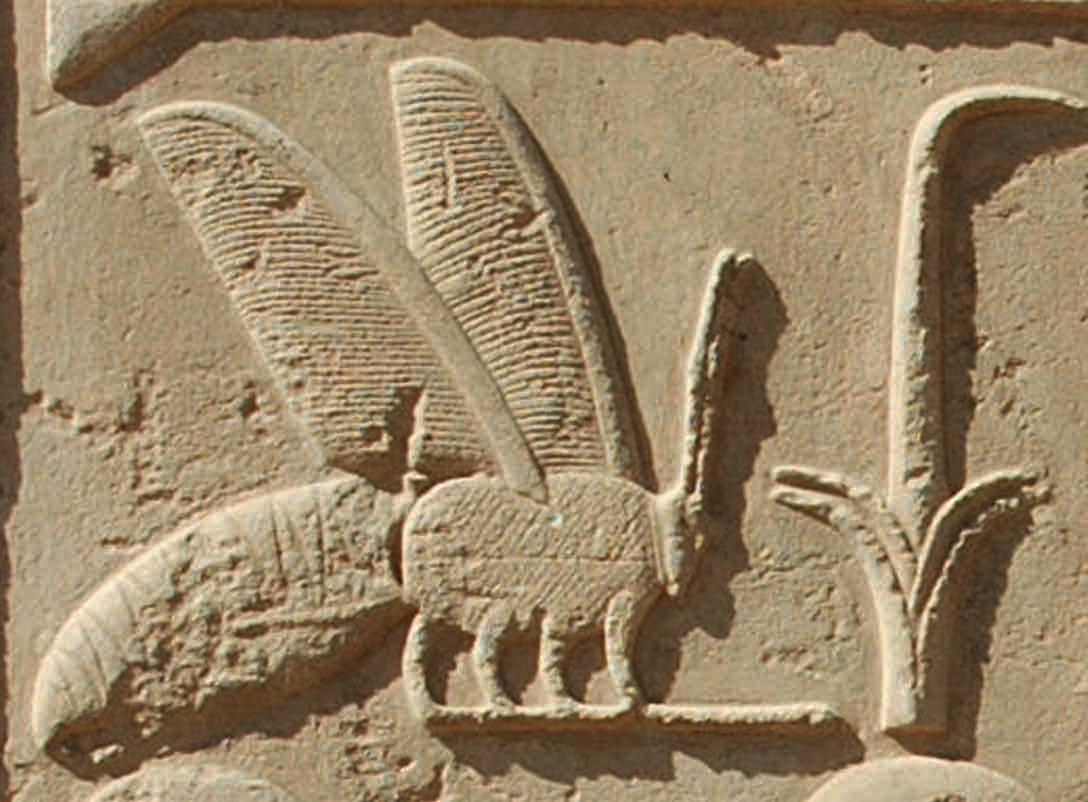Busy Bees

The cartouche containing the King’s coronation name is introduced by the phrase nesu bity, an expression usually translated as ‘King of Upper and Lower Egypt’, but which has the literal meaning ‘He of the Sedge and the Bee’ (see above). This title includes one of the most striking of all hieroglyphs – the bee. The bee was used in the royal titulary from very early in the Old Kingdom and seems to have been adopted as an emblem or badge of the Delta region, Lower Egypt, with the sedge plant representing Upper Egypt, just as the rose and the thistle are used, for example on British rugby shirts, as emblems of England and Scotland respectively. Bees existed in the wild throughout Egypt but must have been more common in the Delta where extensive areas of marshes and pasturelands provided a great variety of flowering plants.
この記事は Ancient Egypt の Issue 104 版に掲載されています。
7 日間の Magzter GOLD 無料トライアルを開始して、何千もの厳選されたプレミアム ストーリー、9,000 以上の雑誌や新聞にアクセスしてください。
すでに購読者です ? サインイン
この記事は Ancient Egypt の Issue 104 版に掲載されています。
7 日間の Magzter GOLD 無料トライアルを開始して、何千もの厳選されたプレミアム ストーリー、9,000 以上の雑誌や新聞にアクセスしてください。
すでに購読者です? サインイン

INSIDE THE STEP PYRAMID OF DJOSER
Sean McLachlan explores the recently reopened interior of this iconic Third Dynasty Saqqara monument.

PER MESUT: for younger readers
She Who Loves Silence

Highlights of the Manchester Museum 29: An Offering by Queen Tiye for her Husband
Campbell Price describes an offering table with a touching significance.

Highlights Of The Manchester Museum 28: Busts Of Jesse And Marianne Haworth
Campbell Price describes the significance of two statue busts on display in the Museum.

TAKABUTI, the Belfast Mummy
Rosalie David and Eileen Murphy explain how scientific examination of the ‘Belfast Mummy’ is revealing much new information about her life and times.

Lost Golden City
An Egyptian Mission searching for the mortuary temple of Tutankhamun has discovered a settlement – “The Dazzling of Aten” – described as the largest city ever found in Egypt (see above). Finds bearing the cartouches of Amenhotep III (see opposite, top) date the settlement to his reign, c. 1390-1352 BC – making it about 3400 years old.

Jerusalem's Survival, Sennacharib's Departure and the Kushite Role in 701 BCE: An Examination of Henry Aubin's Rescue of Jerusalem
BOOK REVIEWS

Golden Mummies of Egypt: Interpreting Identities from the Graeco-Roman Period by Campbell Price
BOOK REVIEWS

Old And New Kingdom Discoveries At Saqqara
An Egyptian team working on a Sixth Dynasty pyramid complex near the Teti pyramid at Saqqara has made a series of important discoveries.

Map Of Egypt
What’s in a name? It is easy for us to forget that the names we associate with the pyramids – such as the Meidum Pyramid, the Bent Pyramid or the Black Pyramid – would have been meaningless to their builders.